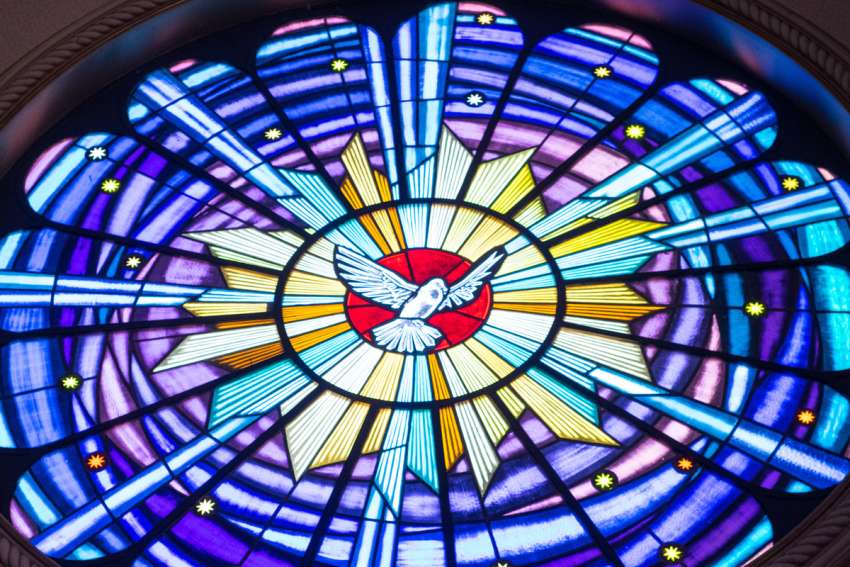The followers of Jesus were shattered by the arrest and crucifixion of Jesus. Although He had risen from the dead and instructed them during His sojourn of 40 days, they still did not understand His constant admonitions to remain in Jerusalem until they were clothed with power from above. The descent of the Spirit was stunning — a loud wind-like roar, accompanied by tongues of flame. The Spirit fell in equal measure on all of them — there was no hierarchy of worth or dignity. As they began to praise God, the people gathered from all corners of the known world heard the proclaimed message in their own language. This was a fulfillment of the prophetic promise of Joel. In the last days, God promised to pour out the divine Spirit on all flesh — men, women, children and slaves — to unify and restore a broken and fragmented humanity. The confusion of tongues from the curse of Babel was reversed. God desired one humanity under one God without barriers and walls.
People have worked overtime during the past 2.000 years to thwart and overturn God’s vision and desire, often offering theological justifications. The enemies of God’s vision are many: nationalism, racism, sexism, classism and greed to name a few. As much as people give lip service to the Holy Spirit, many fear the very idea of a united humanity and world, to which the politics of the last few decades bear doleful witness. But the fear that had gripped the Apostles and the early followers of Jesus disappeared with the gift of the Spirit. From then on, they bore fearless witness to the Lord, even to the point of suffering and death. Scholars search for the cause of the rise and spread of the Gospel but the answer is hiding in plain sight: the Spirit.
One of the reasons for discomfort with the Spirit is the fact that the ego must take a back seat. That does not stop some from invoking the Spirit for selfish or ideological ends, but to live authentically in the Spirit means letting the Spirit be in charge. Paul drove this point home in his letter to the fractious and contentious Corinthians. There is only one Spirit, working through all for the common good and the divine intention. Spiritual gifts are merely on loan and not for self-aggrandizement. To use the Spirit for profit or to divide people is to insult the God who is the giver of the gift. The Spirit binds us together in mind and heart in a way that is similar to that seen in solidarity shown during disasters or times of great suffering.
The giving of the Spirit is related twice in the New Testament — once in Acts (above) and then in John. They are very different — Acts describes a rather noisy and public event, while John’s version was quiet and private. In John, Jesus was present to bestow the Spirit personally. Which is historically accurate? We will never know, and it does not really matter. Both agree that the giving of the Spirit changed everything. In Acts, the emphasis was on empowerment and the fulfillment of prophecy. In John’s account, the giving of the Spirit was an act of re-creation and calling to life the spark of the divine within His followers. The divine breath/spirit that Jesus filled them with was the same as that which moved over the face of the waters in the Genesis creation account. He charged them with the same mission as His own: to reveal to the world the nature of God unfiltered by human thought and to lead others to a personal relationship with that God.
Never has the world had a greater need for an authentic manifestation of the Spirit than now. Human solidarity, active compassion and unity of purpose are presently in short supply, but they are the only things that will save our world. The mission of all who are serious about Christian discipleship is to call to life the divine spark that dwells in every person.


